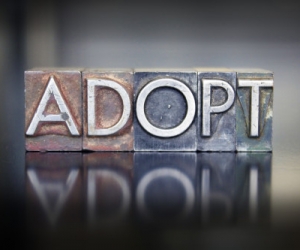REHOBOTH BEACH, Del. — So much for San Francisco.
The list of top cities for same-sex couples as a portion of the population does not include that traditional gay mecca, according to new census data. In fact, the city, which ranked third in 1990 and 11th in 2000, plummeted to No. 28 in 2010. And West Hollywood, once No. 1, has dropped out of the top five.
The Census Bureau data, finalized this week and analyzed by Gary Gates, a demographer at the Williams Institute at the University of California, Los Angeles, gives the clearest picture to date of same-sex couples in America. In absolute numbers, they jumped by half in the past decade, to 901,997.
Most surprising is how far same-sex couples have dispersed, moving from traditional enclaves and safe havens into farther-flung areas of the country.
Consider, for example, the upstarts on the list: Pleasant Ridge, Mich., a suburb of Detroit; New Hope, Pa.; and this beach town in southern Delaware. All three have been popular destinations for gay people locally but had never ranked in the top 10.
The No. 1-ranked town is Provincetown, Mass., at the tip of Cape Cod.
The reordering reflects a growing influence of baby boomers, who became adults in the 1960s and 1970s, when the social stigma was starting to ease, and are more willing than previous generations to stand up and be counted, Mr. Gates said.
Now that generation, arguably the first in history with such a large contingent that is out, is beginning to retire, and its life transition is showing up in the data, with older cities as the new popular choices.
“As the baby boomer generation ages into retirement,” Mr. Gates said, “we see its impact really strongly in the geography.”
The pattern was in evidence in Rehoboth Beach, a family resort town of 1,300, which was fourth on the list of same-sex couples per capita and did not figure in the top 10 rankings in 1990 or 2000.
“The change was pretty dramatic,” said Rick McReynolds, 58, a resident. “It used to be all these boys,” but now, he said, the gay population in town is older and has less of a singles scene.
But people who used to party here, like Bob Moore, a retired communications professor from Pennsylvania, have since returned with their partners to live. Mr. Moore, who came out in his 40s, after two children and a divorce, said he and his partner were looking for a place that was gay friendly, but not an exclusive enclave.
“We liked the fact that it was gay without being the Castro” neighborhood of San Francisco, said Mr. Moore, 59, who was sitting with his partner, Steve Ortleib, in Rigby’s Bar and Grill on Tuesday night.
He said they had visited four top retirement destinations for same-sex couples — two in California and two in Florida — before settling on Rehoboth.
In interviews in San Francisco on Tuesday, several gay people said the city attracted people who did not always want to become part of a couple. The census does not ask about sexual orientation.
“You settle down in small towns because there is not much to choose from,” said Nick Meinzer, 41, a hairstylist who works on Castro Street. “In urban areas we wait longer to settle down. I’ve been single for two years. They’re not counting those of us who are single.”
Of the top cities like Pleasant Ridge, Mr. Meinzer said: “I’ve never even heard of those places. You’d think if they were so great you’d have heard of them.”
Dennis Ziebell, 61, the owner of Orphan Andy’s, a Castro neighborhood diner he opened 35 years ago, said he did not believe the count was accurate. “Take another survey, that’s all I can say,” he said. “I’ve been in a relationship for 36 years and nobody from the census asked me about it.”
Last year was the third time the Census Bureau counted same-sex couples. The count included people of the same sex in the same household who said they were spouses or unmarried partners (spouses were not included in 1990). Mr. Gates calculated how many same-sex couples there were for every 1,000 households within towns and cities across the country.
New York is too big to figure prominently in top city rankings for same-sex couples per capita (it was 67th in 2010, Mr. Gates said), but it does rank by county, alongside more the more traditional locations. Manhattan is No. 5, after San Francisco County, Hampshire County, Mass., Monroe County, Fla., and Multnomah County, Ore.
The city ranking is a barometer of the changing demographics among the population of same sex couples, which has grown more diffuse throughout the country over the past 20 years.
In interviews here this week, several couples said that social attitudes had softened overt time and that living farther afield was now easier to do. Mr. Gates compared the phenomenon to immigrants who no longer sought the safety of an enclave.
Steve Elkins, who runs a nonprofit community center called Camp Rehoboth, which acts as a liaison with the gay community, said cultural training classes for the summer police force would be met by stony stares in the early days. More recently, when he asked the police officers if they knew a gay person, two people in the class raised their hands to say they were gay.
“It’s a generational change in thoughts and attitudes,” he said. Rehoboth, he likes to say, used to be an island of tolerance in a sea of homophobia, and now is an island of tolerance in a sea of outlet malls.
Further evidence, Mr. Elkins said, was the quick passage of a civil unions bill that is set to take effect in Delaware on Jan. 1.
TO READ THE COMPLETE ARTICLE, GO TO: http://www.nytimes.com/2011/08/25/us/25census.html


 Surprisingly, that has been one of the most asked questions by parents of children born with the assistance of a surrogate mother. In many cases, the carrier’s name may be removed from the child’s original birth certificate by a proceeding called a pre-birth order. Some states do not provide for pre-birth orders. Those that do, may or may not replace the carrier’s name with that of the non-biological intended parent. California, for instance, does offer the ability to include the non-biological parent’s name on the child’s original birth certificate, and that very significant step is often mistakenly viewed as a replacement for a second parent adoption, which is the only definitive way to establish parental rights between a non-biological parent and a child born through legal surrogacy.
Surprisingly, that has been one of the most asked questions by parents of children born with the assistance of a surrogate mother. In many cases, the carrier’s name may be removed from the child’s original birth certificate by a proceeding called a pre-birth order. Some states do not provide for pre-birth orders. Those that do, may or may not replace the carrier’s name with that of the non-biological intended parent. California, for instance, does offer the ability to include the non-biological parent’s name on the child’s original birth certificate, and that very significant step is often mistakenly viewed as a replacement for a second parent adoption, which is the only definitive way to establish parental rights between a non-biological parent and a child born through legal surrogacy.